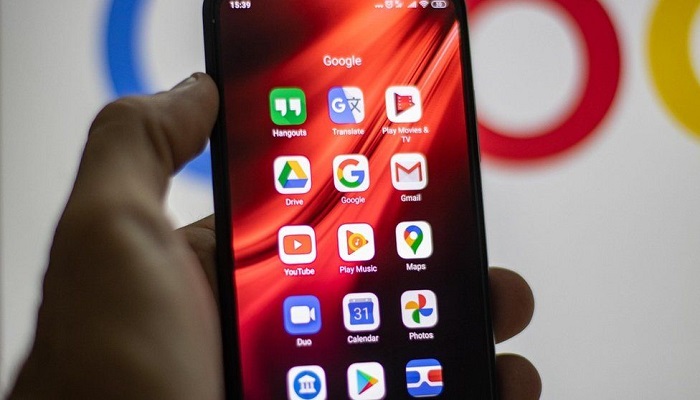This article explains how to disable internet data only on those apps that consume data in Android devices’ background.
With the rate at which Android apps with different features are being developed daily, we are tempted to install most of them on our Android devices.
This is the reason why people now prefer phones with huge RAM – to enable them to install as many apps as possible, without having their Android device hanging.
After installing all these applications, we may discover that some of them are consuming much of the data in the background.
But we can’t afford to delete the app because it is of great importance to us. On the other hand, we don’t want to spend much data on them.
Now you will be wondering what is the way out. Switching off your mobile data means that there won’t be an internet connection on your device. Am sure you won’t want to do that.
In a situation of this nature, this article will be essential to you.
You are left with option to turn off your mobile internet data, which will disconnect all apps from connecting online.
Or you may disable mobile internet data for that particular app, which is what am going to show you in this post.
I will show you step-by-step process with images on how to disable internet data on individual apps on your Android device. You can always enable it when you need internet access on the app.
Disable Data Consuming Apps on Android
Using Android Settings to Restrict Data Usage
Accessing Data Usage Settings:
- Open “Settings” on your Android device.
- Navigate to “Network & Internet” or “Connections.”
- Select “Data usage” to view detailed information.
Restricting Background Data:
- In the “Data usage” section, tap on the app you want to restrict.
- Toggle on the option to “Restrict background data.”
Disabling Mobile Data for Specific Apps
Steps to Turn Off Mobile Data for Individual Apps:
- Go to “Settings” and select “Apps & notifications.”
- Choose the app you want to restrict.
- Tap on “Data usage” and toggle off “Mobile data.”
Benefits and Limitations:
- Benefits: Saves data, reduces battery consumption, and prevents unexpected data usage.
- Limitations: The app won’t receive updates or notifications unless connected to Wi-Fi.
Using Data Saver Mode
Enabling Data Saver on Android:
- Open “Settings” and go to “Network & Internet” or “Connections.”
- Select “Data usage” and tap on “Data Saver.”
- Toggle on “Data Saver” mode.
Customizing Data Saver Settings:
- In the “Data Saver” menu, tap on “Unrestricted data” access.
- Select the apps you want to allow unrestricted data access even when Data Saver is on.
Third-Party Apps to Control Data Usage
Overview of Data Management Apps: Several third-party apps can help you manage and restrict data usage more effectively. These apps often offer advanced features like detailed data reports, usage alerts, and customized restrictions.
Recommended Apps and Their Features:
- NetGuard: Provides simple and advanced ways to block internet access per app.
- My Data Manager: Tracks data usage and sets alerts to avoid overages.
- GlassWire: Monitors real-time data usage and provides detailed reports.
Disabling Wi-Fi for Specific Apps
Using Advanced Wi-Fi Settings: While Android doesn’t natively support disabling Wi-Fi for individual apps, some third-party apps can help.
Steps to Restrict Wi-Fi Access:
- Install a firewall app like NetGuard.
- Configure the app to block Wi-Fi access for specific apps.
Using VPNs and Firewalls to Control Data Access
How VPNs and Firewalls Can Help: VPNs and firewall apps can manage which apps can access the internet, providing another layer of control over your data usage.
Recommended VPN and Firewall Apps:
- NetGuard: A no-root firewall that can block internet access per app.
- NoRoot Firewall: Allows you to create filter rules based on IP address, hostname, or domain name.
Monitoring and Managing Data Usage Regularly
Setting Data Usage Alerts:
- Go to “Settings” and select “Network & Internet” or “Connections.”
- Tap on “Data usage” and set a data limit or warning.
- You will receive alerts when you approach your data limit.
Regularly Reviewing Data Usage Reports:
- Use built-in data usage features or third-party apps to review reports.
- Identify trends and adjust your app usage accordingly.
Tips for Reducing Data Consumption
Best Practices for Lower Data Usage:
- Use Wi-Fi whenever possible.
- Download content for offline use.
- Update apps only over Wi-Fi.
Alternatives to High Data-Consuming Activities:
- Stream at lower quality.
- Use lite versions of apps.
- Disable auto-play videos on social media.
Conclusion
Disabling internet access for data-consuming apps can significantly help manage your data usage and prevent overages.
By utilizing the methods outlined in this guide, such as restricting background data, using Data Saver mode, and leveraging third-party apps, you can take control of your data consumption on your Android device.
Congratulations you have successfully disabled internet data for the selected app. To enable background Internet data for any app that you disable, you will have to undergo the same process and uncheck ‘Restrict background data.
I hope this article was helpful to you.
Related tags: restrict apps from using data android | how to restrict data usage on android | restrict foreground data android | how to restrict apps from using data Samsung | what happens when you restrict background data? how to block an app from accessing the internet android | what apps use the most data on android.
RELATED ARTICLES


